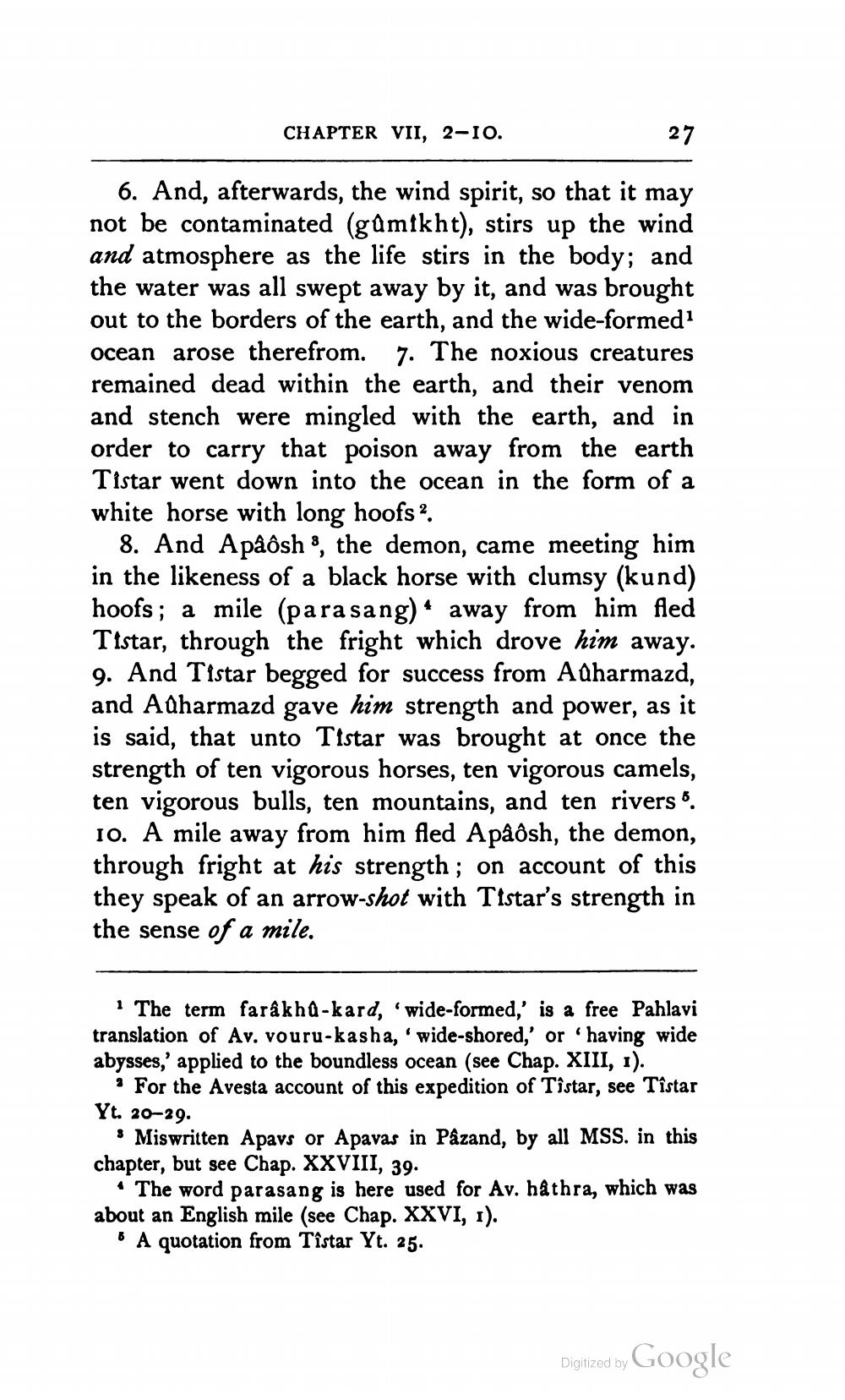________________
CHAPTER VII, 2-10.
27
6. And, afterwards, the wind spirit, so that it may not be contaminated (gūmikht), stirs up the wind and atmosphere as the life stirs in the body; and the water was all swept away by it, and was brought out to the borders of the earth, and the wide-formed ocean arose therefrom. 7. The noxious creatures remained dead within the earth, and their venom and stench were mingled with the earth, and in order to carry that poison away from the earth Tistar went down into the ocean in the form of a white horse with long hoofs?.
8. And A pâôsh, the demon, came meeting him in the likeness of a black horse with clumsy (kund) hoofs; a mile (parasang) * away from him filed Tistar, through the fright which drove him away. 9. And Tistar begged for success from Adharmazd, and Adharmazd gave him strength and power, as it is said, that unto Tistar was brought at once the strength of ten vigorous horses, ten vigorous camels, ten vigorous bulls, ten mountains, and ten rivers 6. 10. A mile away from him fled Apâôsh, the demon, through fright at his strength; on account of this they speak of an arrow-shot with Tistar's strength in the sense of a mile.
1 The term farakha-kard, wide-formed,' is a free Pahlavi translation of Av. vouru-kasha, wide-shored,' or 'having wide abysses,' applied to the boundless ocean (see Chap. XIII, 1).
. For the Avesta account of this expedition of Tîstar, see Tîstar Yt. 20–29.
* Miswritten Apavs or Apavas in Pazand, by all MSS. in this chapter, but see Chap. XXVIII, 39.
• The word parasang is here used for Av. hathra, which was about an English mile (see Chap. XXVI, 1).
A quotation from Tîstar Yt. 25.
Digitized by
Digitized by Google




